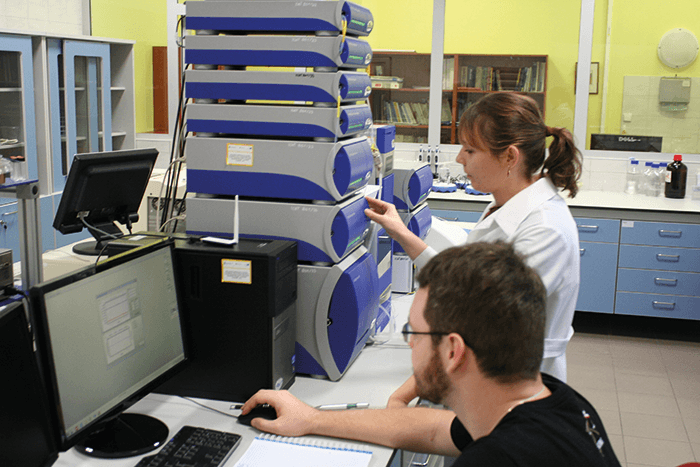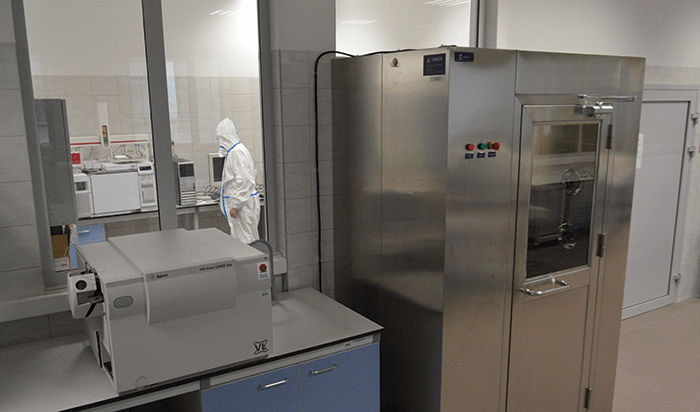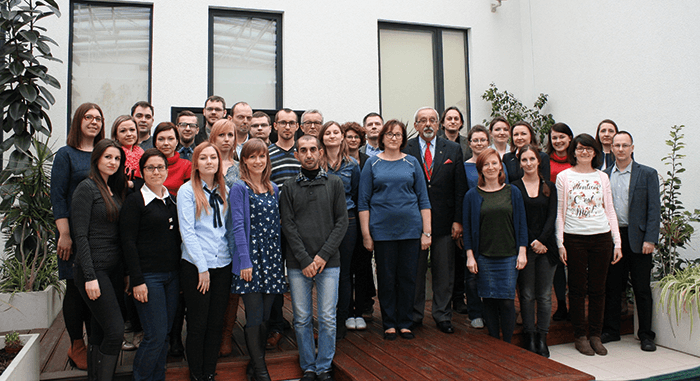I undertook my education in the time of communism in Central and Eastern Europe; however, I was fortunate to have great professors from Warsaw, such as Wiktor Kemula, Jerzy Minczewski, Zygmunt Marczenko and Adam Hulanicki, and mentors from Lublin, such as Andrzej Waksmundzki, Edward Soczewiński and Zdzisław Suprynowicz. They set the tone of Polish analytical chemistry, not only in terms of scientific standards, but also aesthetic and practical. I finished my studies at the Faculty of Chemistry at the Maria Curie Skłodowska University in Lublin, where I first came into contact with chromatography and where I became a pioneer in Poland in the construction the first liquid chromatograph and the first HPLC columns. Here I also built the elutriator - a device to fractionate sorbents. The influence of Waksmundzki made Lublin a leader in separation methods.


Poland has always excelled in separation science, but a lack of instrumentation during the Cold War-era meant there was a particular focus on the development of thin-layer chromatography. In this area, the center in Lublin dominated, with people such as Waksmundzki, Suprynowicz and Soczewiński making the biggest contributions. Column liquid chromatography also took its first tentative steps in Lublin, specifically in terms of the new generation of stationary phases and synthetic packing with controlled density coverage on the basis of silica (silica gel and porous glass). In terms of gas chromatography, the scope of basic research was related to the interpretation of the retention-structure of an analyte and provided the basis for the use of topological species for group analysis. At the same time, methods of sample preparation were developed based on the distillation and extraction processes. The range of its application was related to environmental analysis (PCBs, PAHs, pesticides) and pharmaceutical analysis with retention-structure (QSRR) elements. A new generation of DS chamber for TLC and HPLC detectors was introduced, as well as the first ITP apparatus. I actively participated in the research described above – mainly the theory of reversed-phase systems, new stationary phases, solvation effects and adsorption of solvent components on the surface of column packings. The introduction of SPE in 1976 for the use of stationary phases with a chemically bounded phase to isolate pesticides, was a major “theme” in these studies. At the same time, new packings for SPE were applied in pharmacognosy analysis, specifically the isolation and purification of biologically active substances extracted from plants.

Despite the advances we made behind the Iron Curtain, after 1989, we found it much easier to cooperate with countries in Western Europe and the rest of the world. We started to organize laboratories, apply for financial support and equip our laboratories according to the Western model. In 1994 I moved from Lublin to Nicolaus Copernicus University, Torun and began to organize research in modern analytical chemistry, and especially the use of separation techniques in environmental chemistry, pharmacy, medicine and food chemistry. We started teaching MSc and PhD students according to European and world standards; now, our laboratories have hosted postdocs or PhD students from more than 20 countries and we share in numerous international programs and projects. I initiated a new Interdisciplinary Center for Modern Technologies, which is considered one of the best centers in Poland for research in the field of omics. The center is very well equipped and frequently collaborates with local small and medium-sized companies. I have been fortunate to have many opportunities to travel beyond our borders, and have been visiting professor at several universities in the USA, Japan, China, South Africa, Australia, Taiwan, Austria, the UK, the Netherlands, and many other European countries. I have also tried to pass on my knowledge to my students, which I believe is crucial for the development of the field. Cooperation in analytical science is key; working with colleagues within Poland and overseas allows us to pursue ambitious goals that fit in with our research. Bogusław Buszewski is full Professor of Analytical Chemistry and Head of the Chair of Environmental Chemistry and Bioanalytics, Faculty of Chemistry, Nicolaus Copernicus University, Torun, Poland. He graduated at the Faculty of Mathematics-Physics-Chemistry of the Maria Curie Sklodowska University in Lublin. In 1986, he received his PhD at the Faculty of Chemical Technology, Slovak Technical University in Bratislava, Czechoslovakia, followed in 1992 by a DrSc degree. In 1994 he became a professor at Nicolaus Copernicus University in Toruń and in 1999 received the title of Professor of Chemistry. He has been Humboldt Fellow at Tübingen University (Germany) and visiting professor at several universities around the world. He chaired the Committee of Analytical Chemistry of the Polish Academy of Sciences from 2015 to 2019 and serves on the editorial boards of 26 national and international journals. He has authored or co-authored 15 books, numerous patents (most of which have been implemented), and more than 460 scientific papers. He is one of the most cited chemists in Poland and received awards from numerous national and international organizations (including Doctor Honoris Causa).




